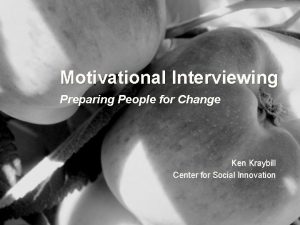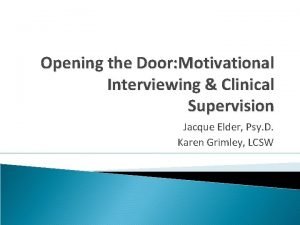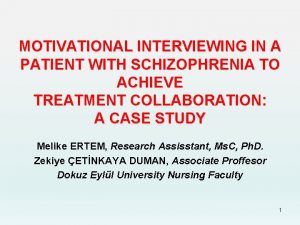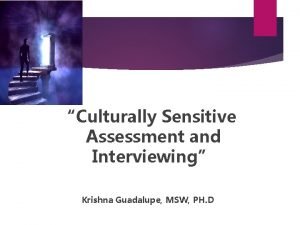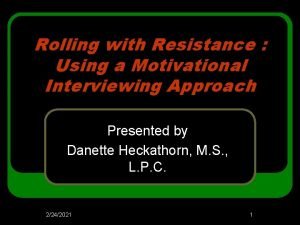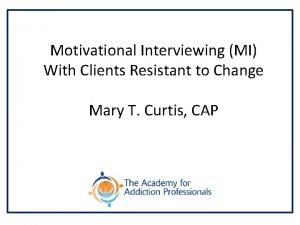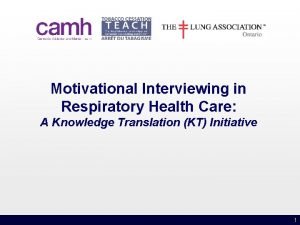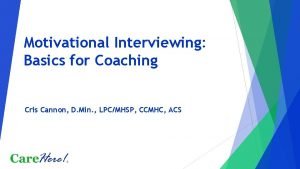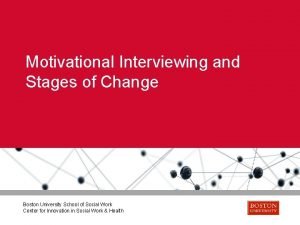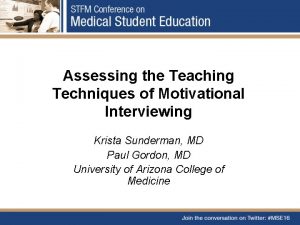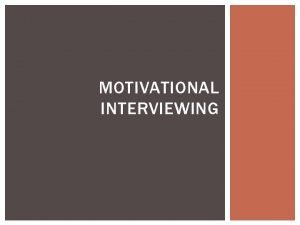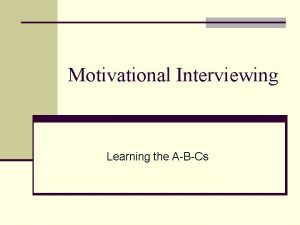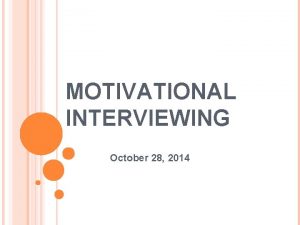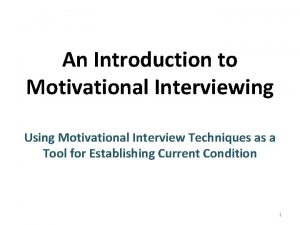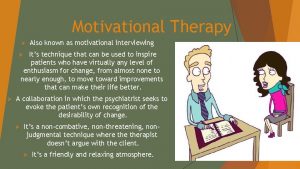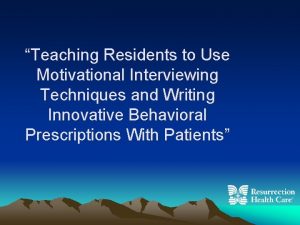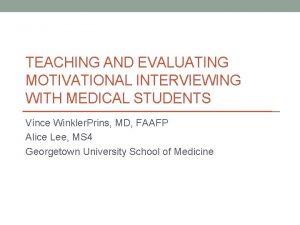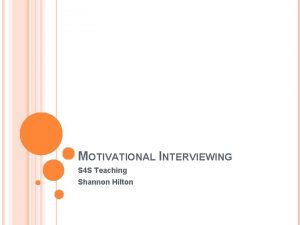Assessing the Teaching Techniques of Motivational Interviewing Krista













- Slides: 13

Assessing the Teaching Techniques of Motivational Interviewing Krista Sunderman, MD Paul Gordon, MD University of Arizona College of Medicine

Disclosures • No disclosures

Motivational Interviewing • A directive, patient-centered counseling style for eliciting behavior change by helping patients explore and resolve ambivalence. • By facilitating and engaging intrinsic motivation, patients are empowered to change behaviors.

Teaching MI at the U of A • MI is recognized at the U of A as a necessary interdisciplinary tool for learners • Taught in the FCM clerkship during a single two hour lecture related to primary prevention and behavioral counseling • Is one lecture enough or does there need to be a curricular change to include MI in a longitudinal framework?

Assessing MI Skills • Prior to academic year 14 -15, FCM clerkship utilized an internal exam • Now FCM clerkship is using the NBME exam • Developed an OSCE to assess the awareness and effectively measure the practical knowledge of MI

Development of an OSCE • Director of the standardized patient program developed and implemented this OSCE as a means for assessing the effectiveness of MI teaching at the end of year 3.

STUDENT INSTRUCTIONS: KARL BLOOM, 68 YEARS OLD

OSCE Scores: Averages by Case

OSCE Scores: ACIR Average by Case

Item Analysis related to MI Score Item 96. 84 Student assisted with recommendations for lifestyle change 96. 84 Gave verbal/nonverbal positive reinforcement 90. 53 Student asked what you would be willing to do (increase exercise, change diet, other) 90. 53 Student negotiated with you to make a lifestyle change 89. 47 Demonstrated empathy re: patient’s emotions & beliefs 83. 16 Student asked you to discuss concern about cholesterol OR lifestyle concern like diet or exercise 76. 84 Student did NOT push cholesterol lowering medication OR drastic diet change 74. 74 Made sure I understand future plans 73. 68 Set agenda with patient’s participation/agreement

Results • OSCE results demonstrate a surprisingly positive outcome – One dedicated lecture on MI appears to be sufficient for knowledge retention and adequate use of the behavorial change model

Implications • Is the positive performance on the OSCE related to the formal teaching of MI in the FCM clerkship? • Are the behaviors of MI inherent in students entering medicine? • Is MI being role modeled by the majority of the physicians students work with, such that this skill is being reinforced?

Next Steps • These results don’t specificially indicate a need for curricular change to include MI in a longitudinal setting across all clerkships. • However this model for teaching and assessing MI is a possible approach for those institutions that do not yet formally do so.
 Decisional balance
Decisional balance Motivational interviewing
Motivational interviewing Motivational interviewing schizophrenia
Motivational interviewing schizophrenia Dares motivational interviewing
Dares motivational interviewing Change talk worksheet
Change talk worksheet Motivational interviewing wiki
Motivational interviewing wiki Motivational interviewing stages of change
Motivational interviewing stages of change Agreement with a twist motivational interviewing
Agreement with a twist motivational interviewing How to roll with resistance
How to roll with resistance Motivational interviewing
Motivational interviewing Darn cat motivational interviewing
Darn cat motivational interviewing Cris cannon
Cris cannon Stages of change social work
Stages of change social work Motivational interviewing case management
Motivational interviewing case management
